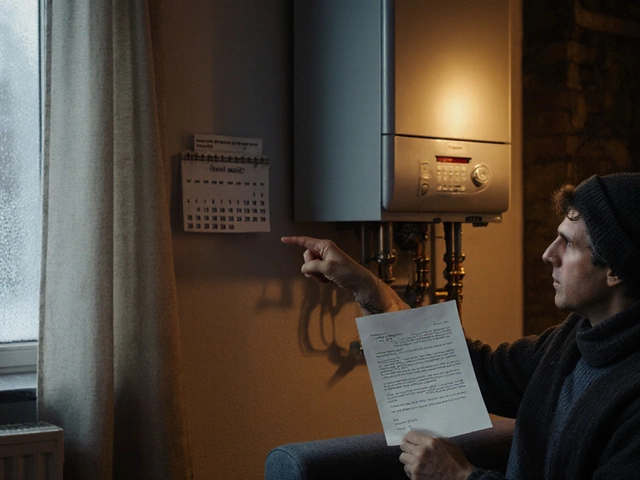Ever wondered how long a dishwasher is supposed to last? You're not alone. Most dishwashers run efficiently for about 7 to 12 years, but that can vary depending on a few factors. If you're dishing out cash on repairs too often, it might be time to evaluate what's going on under the hood—or in this case, behind the door.
So, what affects your dishwasher's lifespan? Well, it's not just about the brand you pick. How often you use it and how you maintain it play a significant role. Regular cleaning of the filter and checking those spray arms can do wonders for its life expectancy.
Wondering how to keep it running like new? It's simpler than you might think. Occasionally running a cleaning cycle and avoiding overloading can help. And listen for any unusual noises or longer cycle times—these can be early warning signs of a problem.
- Understanding Dishwasher Lifespan
- Factors Affecting Longevity
- Maintenance Tips for Extended Use
- Signs It’s Time for a Repair
- When Replacement is Necessary
Understanding Dishwasher Lifespan
So, how long should you expect your trusty dishwashing companion to last? Typically, a good dishwasher lifespan ranges from 7 to 12 years. But don't be surprised if your model keeps chugging along a bit longer if given some tender loving care.
Now, there's no denying that the brand and model you choose do play a part. Some brands are known for durability, while others might not stand the test of time quite as well. But beyond the label, factors like how often you use the appliance and how well you take care of it also matter.
Impact of Usage
Think about how often you run your dishwasher. The more you use it, the quicker it may wear out. But don't fret, everyday use is fine; just try not to overload it with every meal's aftermath. Overworking your machine can reduce its effective life.
Maintenance Matters
Regular maintenance can boost your dishwasher's mileage. Cleaning the filter and running an empty cycle with a cup of vinegar every month can help clear out hidden gunk and prevent buildup that wears on parts. Pretty straightforward, right?
Key Lifespan Factors
What's actually happening when parts start wearing down? Over time, the motor, pump, and heating element may all see wear and tear. If you ever notice issues with these components—like dishes not getting dry or strange noises—you might be wandering into repair territory.
Here's a quick look at commonly replaced parts and their typical lifespans:
| Part | Life Expectancy |
|---|---|
| Motor | 10-12 years |
| Pump | 7-10 years |
| Heating Element | 8-12 years |
Understanding these elements can help you make informed decisions about repairs versus replacing the entire unit.
Factors Affecting Longevity
So, what's the secret to getting the most years out of your dishwasher? Turns out, longevity isn't just about good luck. There are solid reasons why some dishwashers keep chugging along while others fizzle out early. Let's look at the key factors that can influence the dishwasher lifespan.
Frequency of Use
How often do you run your dishwasher each week? More use means more wear and tear. If you're using it daily, it might not last as long compared to someone who only runs it a few times a week. It’s like comparing a daily runner to someone who jogs on weekends.
Water Quality
The type of water running through your appliance impacts its components. Hard water can cause mineral buildup which may lead to clogs or damage. Using a water softener could extend the life of your dishwasher by reducing such wear.
Installation Matters
Believe it or not, how you install your dishwasher can affect its longevity. A poorly installed appliance could suffer from leaks or improper drain flow, which can cause internal damage over time. If you're not handy, hiring a professional might save you money and hassle in the long run.
Maintenance Routine
Want your dishwasher to last? Keep it clean. Simple maintenance steps like cleaning the filter and wiping down the gasket can go a long way. Doing this regularly can help prevent big problems down the line.
Brand and Model
Yes, some brands are known for longer-lasting products, but don’t just take their word for it. Check reviews and ratings from real customers before you choose. A little homework can help you choose a more durable appliance.
| Brand | Typical Lifespan (Years) |
|---|---|
| Brand A | 8-10 |
| Brand B | 10-12 |
| Brand C | 9-11 |
Remember, a little care can make your investment last. Think of your dishwasher as more than just a machine. It’s a daily workhorse that deserves some TLC.

Maintenance Tips for Extended Use
Keeping your dishwasher in top shape doesn't have to be rocket science. There's a bunch of simple tricks that can help you make sure it hits that sweet spot of 12 years or more. Let's dive into some straightforward tips to give your machine a long life and smooth run.
Regular Cleaning
One of the easiest ways to extend your dishwasher's life is regular cleaning. Start with the filter. It can get clogged with food particles, decreasing efficiency. Pop out the filter once a month and clean it with warm, soapy water.
Mind the Loading
Loading your dishwasher might feel like a puzzle game sometimes, but it's crucial to do it right. Overloading can block water flow, while underloading wastes energy and water. Stick to the manufacturer’s guidelines on loading for the best results.
Run a Maintenance Cycle
Every few months, run an empty cycle with some vinegar or a special dishwasher cleaner. This helps clear out any unsavory build-ups and keeps it smelling fresh.
Inspect and Replace Parts
Parts like spray arms and door seals can wear out over time. Check them regularly; if you spot cracks or other issues, it's time for replacements. A little investment in these parts can prevent bigger issues down the line.
Leak Check
- Look underneath occasionally for leaks.
- Tighten any loose connections.
- If you find a leak, don’t delay repairs.
Here's an interesting fact: According to a recent survey, users who follow these tips report a lifespan increase by nearly 20%.
Signs It’s Time for a Repair
Your dishwasher has been a faithful kitchen sidekick, but every appliance reaches a point where it starts showing signs of wear and tear. Spotting these signs early can save you from bigger headaches down the road.
Strange Noises or Smells
If your dishwasher starts sounding like a rock concert or you notice some weird odors, it’s waving a red flag. Unusual noises might mean parts are loose or faulty, while smells could suggest a clogged filter or drain. Both are signs your machine needs attention.
It’s Just Not Cleaning Like It Used To
Left with crusty plates after a cycle? That could mean your dishwasher’s spray arms or pump are underperforming. If you clean the food particles off the filter and the dishes still aren’t getting clean, it might be time for a check-up.
Water Leaks
Leaks are more than just a nuisance—they can lead to bigger problems like floor damage or mold. Check door seals and gaskets. If puddles become a common sight, contacting a repair technician is a smart move.
Cycles Dragging On or Not Completing
When your dishwasher’s cycle takes forever—or even worse, doesn’t finish—there’s likely an underlying issue. Possible culprits include a faulty thermostat or a problematic timer.
"Ignoring any of these symptoms could cost you more in the long run," says appliance expert, Tom Hensley of Home Appliance Solutions. "Being proactive with repairs can extend the life of any appliance."
Dishwasher repair tends to seem daunting, but keeping an eye out for these signs gives you a head start on tackling issues before they escalate. Remember, a stitch in time saves nine and maybe even a few hundred bucks!

When Replacement is Necessary
So, when is it time to say goodbye to your dishwasher? While repairs can keep old your appliance running, there comes a point where replacement is just smarter and more cost-effective.
Frequent Breakdowns
If you're calling the repair guy more often than you'd like to admit, it might be time to think replacement. Multiple issues with the pump, motor, or heating element can add up quickly in repair costs. It's a telltale sign that the end is near when fixes become more frequent.
Age of the Dishwasher
Most dishwashers have a lifespan of 7 to 12 years. If yours is on the older side and starting to show its age with worn down and rusty racks, it might not make sense to keep investing in repairs. Newer models are more energy-efficient and might save you money in the long run.
Energy Efficiency
Is your utility bill spiking without any other explanation? Older dishwashers can be real energy hogs. Newer models are significantly more efficient, using less water and energy per cycle. Switching to a new machine can result in savings that may offset the cost of the appliance itself.
Repair Costs vs. Replacement Costs
There's a simple rule of thumb: if the repair costs are more than half of what a new dishwasher would cost, replacement is usually the way to go. This is especially true if your appliance is nearing the end of its expected lifespan. Don't waste money on an old machine when that cash could go toward something shiny and new.
Check out this quick comparison to help with your decision:
| Scenario | Consider Replacement |
|---|---|
| Frequent repairs | Yes |
| 10 years old or older | Definitely |
| High water and energy use | Yes, if a newer model is more efficient |
| Repair costs are 50% or more of a new appliance | Absolutely |
If these realities are hitting home, start researching new models. It's an investment, sure, but one that will pay off with less headache and more efficiency.







